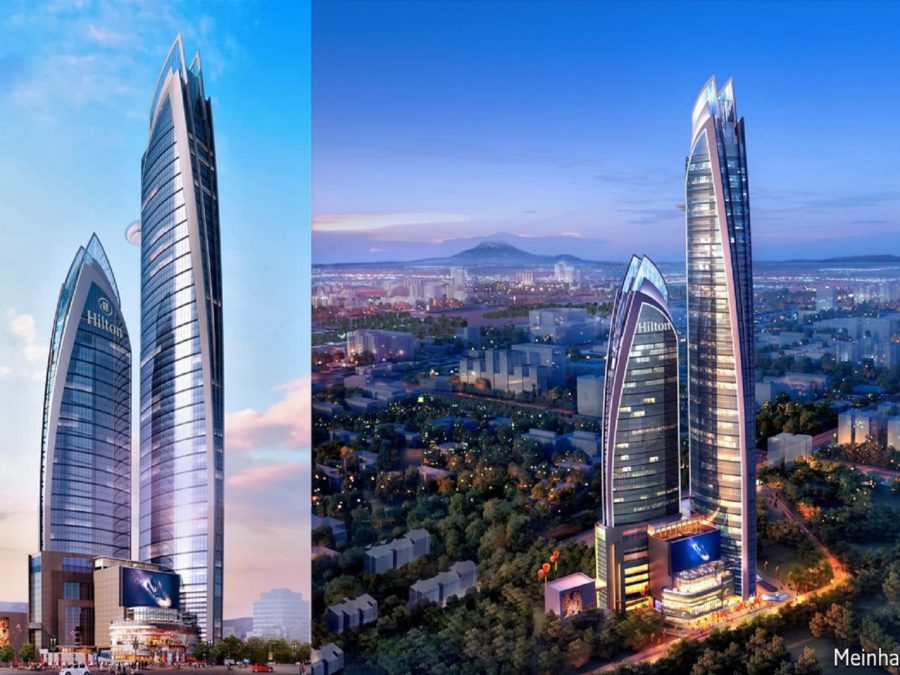Does the start of Africa’s tallest building signal the end of Kenya’s business development boom?
Or maybe Nairobi, Kenya’s traffic-clogged capital can be the next Dubai?
Two large Dubai-based investors, Hass Petroleum and White Lotus, seem to think so. On May 23rd they formally started construction of what they claim will be Africa’s tallest building. Out of a vast hole in the ground in Upper Hill, a neighborhood full of government offices, will rise two towers, the taller some 300 metres high and named “The Pinnacle”. (For comparison, the Burj Khalifa in Dubai, the world’s tallest building, is 828 metres high). One will contain a hotel; the other, some 150 swanky apartments (or “residences”). A helipad will jut out of the roof of the taller tower, allowing the truly plutocratic to be whisked in over the traffic jams from the airport.
The investment is a fillip for Kenya. Much of Africa is in economic trouble. In 2016, according to the IMF, annual GDP growth across the continent sank to just 1.4%, the lowest rate in 20 years. Yet Kenya, which depends less on oil and mining than most African countries, has kept growing. Its economy probably expanded by 6% in 2016. Much of that came from projects such as the Pinnacle, a $220m investment. Nairobi’s skyline is dotted with cranes; new suburban housing estates are flourishing at the edge of the city. However, not everyone is confident that it can last.
For most of the past decade, investing in property in Nairobi has been extraordinarily lucrative. “Ten years ago, anything, honestly anything, would sell out,” says Sakina Hassanali of Hass Consult, a property agency unconnected to Hass Petroleum. House prices have more than doubled since then, despite a flood of new apartment blocks and housing estates. As well as foreign investors, the boom has been underpinned by investment from wealthy Kenyans. Faced with an illiquid stock exchange and precarious banks, they have preferred to put their money into property. Scammers have got in on the frenzy, selling land they do not own, or off-plan apartments which are then built shoddily or not at all.
But is the property boom actually now slowing?… read more





